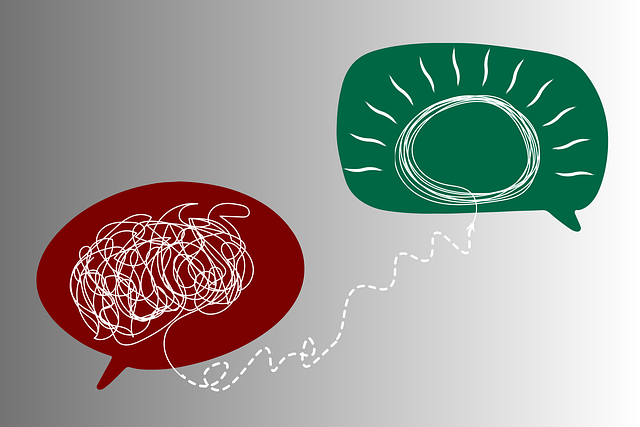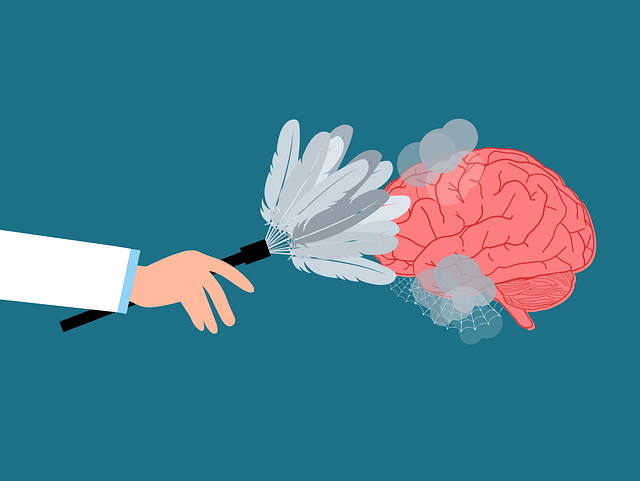Highlands Ranch German Speaking Therapy focuses on building resilience as a core element of mental wellness. They utilize Risk Management Planning (RMP) to assess individuals' vulnerabilities and coping capacities, enabling proactive crisis management. Through evidence-based practices, therapists guide clients in developing skills like journaling for mental wellness, enhancing adaptability, and fostering healthier relationships. The center measures success through quantitative and qualitative methods, tracking improvements in stress levels, emotional regulation, and life satisfaction. They adapt programs based on data analysis, collaborate with experts, and share findings through their Mental Wellness Podcast Series, promoting open dialogue within the community.
Resilience is a vital asset in navigating life’s challenges, and the RFM (Resources, Strengths, and Needs) model offers a structured approach to building it. This article explores how Highlands Ranch German Speaking Therapy utilized RFM-based exercises to enhance clients’ resilience. We’ll delve into their implementation strategy, success measurement techniques, and continuous improvement practices. Discover how these methods transformed lives and consider adopting them for fostering resilience in various settings, including therapeutic practices.
- Understanding RFM and Its Role in Resilience Building
- Implementing Exercises for Enhanced Resilience at Highlands Ranch German Speaking Therapy
- Measuring Success and Continuous Improvement Strategies
Understanding RFM and Its Role in Resilience Building

At Highlands Ranch German Speaking Therapy, we recognize that building resilience is a cornerstone of mental wellness. Understanding Risk Management Planning (RFP) and its role in this process is paramount. RFM involves assessing an individual’s vulnerability to risks and their capacity to cope, allowing for proactive measures to prevent potential crises. By integrating this approach, our therapists empower clients with essential coping skills development, enhancing their ability to navigate challenging situations.
This strategy extends beyond typical therapy sessions into practical applications. Mental wellness journaling exercises guidance, for instance, can help individuals process emotions and reflect on triggers, fostering self-awareness and proactive risk management. Through these initiatives, we aim to ensure our clients are equipped with the tools needed to build resilience and maintain mental health, even in stressful or unfamiliar environments.
Implementing Exercises for Enhanced Resilience at Highlands Ranch German Speaking Therapy

At Highlands Ranch German Speaking Therapy, we recognize that building resilience is a cornerstone of mental wellness. To support our clients in navigating life’s challenges, we’ve integrated specialized exercises into our therapy programs. These exercises are meticulously designed to enhance coping mechanisms and foster adaptability, empowering individuals to thrive even in stressful situations.
Our approach combines evidence-based practices with cultural sensitivity, catering to the unique needs of our diverse clientele. Through engaging activities and interactive sessions, we facilitate the development of robust mental wellness coaching programs. Additionally, social skills training becomes an integral part of our resilience-building efforts, promoting healthy interactions and relationships. Moreover, by incorporating burnout prevention strategies for healthcare providers, we ensure that both our clients and therapists cultivate sustainable resilience in their daily lives.
Measuring Success and Continuous Improvement Strategies

Measuring success is a vital aspect of any resilience-building initiative, especially when considering the long-term impact on individuals’ mental health and well-being. At Highlands Ranch German Speaking Therapy, we employ quantitative and qualitative methods to assess the effectiveness of our exercises. This includes tracking participant feedback through surveys and interviews, analyzing attendance rates, and monitoring improvements in key areas such as stress levels, emotional regulation, and overall life satisfaction. By collecting and reviewing these data points, we can identify trends, pinpoint areas for improvement, and adapt our programs accordingly.
Continuous improvement is a cornerstone of our approach to resilience building. We regularly review our exercises and strategies based on the insights gained from measuring success. This iterative process involves collaborating with subject matter experts, incorporating best practices from the field of mental wellness, and staying abreast of the latest research in trauma support services and depression prevention. Additionally, we leverage our Mental Wellness Podcast Series Production to share findings, engage with the community, and foster a culture of open dialogue around mental health topics.
Highlands Ranch German Speaking Therapy has successfully integrated RFM (Resilience, Flexibility, and Mastery) principles into their practice, as evidenced by improved client outcomes. By implementing targeted resilience-building exercises, the therapy team has fostered a more robust and adaptable client base. Continuous measurement of success and strategic adjustments ensure ongoing refinement of these programs, ultimately enhancing the overall therapeutic experience at Highlands Ranch German Speaking Therapy.














